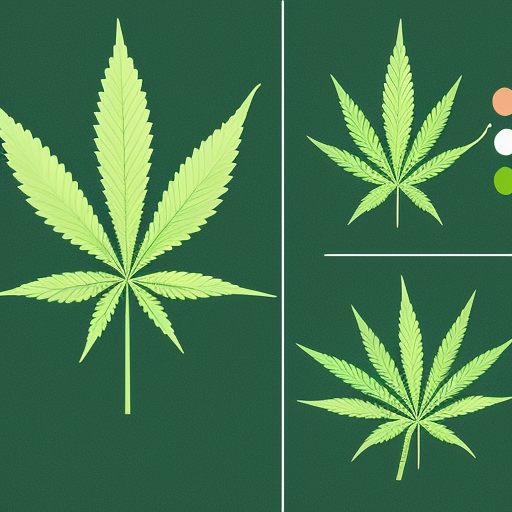
Yo, what’s good fam? It’s your boy Dan here with some knowledge on how to up your cannabis game with the use of a lux meter. If you’re not about that guesswork life when it comes to lighting your grow, then listen up because this device is gonna give you some much-needed control. A lux meter gives you an estimate of the amount of light hitting your plants, and while it won’t give you all the deets, it’s better than just using your eyes alone.
Lux and PPFD: What’s the Difference?
First thing’s first, let me tell you about the debate going on in the cannabis space. Some growers claim that they get consistent results using a lux meter, but some say that these devices have their limitations. You see, lux measures brightness as perceived by the human eye. Our eyes are more sensitive to yellow and green wavelengths of light, rather than blue and red. Lux might be useful for dealing with humans, but it don’t tell us much about the intensity of light that plants need to drive photosynthesis.
On the other hand, photosynthetic photon flux density (PPFD) measures the amount of photosynthetically active radiation (PAR) light that hits a square metre each second. This means that PPFD tells us about the concentration of useful light that plants get from both blue and red wavelengths. The equation looks like this: μmol/m²/s. Compared to lux which is only related to illuminance based on human perception, PPFD has more utility within horticulture.
The problem is that instruments used to measure PAR are expensive af and less accessible to regular growers like us. Lux meters may not be able to reveal the density of photosynthetic light, but they come in handy when it comes to light placement – a variable that can make or break cannabis plant health and yield.
What is a Lux Meter?
Aight, so let me break this down for you real quick. A lux meter is a device that measures lux – which is a unit of illuminance. More specifically, lux meters measure luminous flux per unit area. Luminous flux refers to the power of light perceived by humans. So, when you’re cultivating cannabis in a grow tent, the equation is: lux = lumens/m².
While they don’t offer an accurate assessment of light output, lux meters are still a handy tool in any grower’s arsenal. They give you some idea about how bright your lights are and can help you position them at the optimal distance above your canopy.
Benefits of Using a Lux Meter
So why should you use a lux meter? Do these devices really matter when it comes to growing cannabis? Let me give you some insight into potential benefits:
Helps Increase Yield: The key to growing healthy and productive cannabis plants is lighting. But it takes more than just hanging up any old light and hoping for the best. Using a lux meter can help you position your grow light at the optimal distance above your canopy.
Tells You When You Need to Replace HID Grow Lights: Eventually, certain types of grow lights including metal halide (MH) and high-pressure sodium (HPS) will lose efficacy. They’ll dip in performance, become dimmer and fail to drive photosynthesis as effectively. A lux meter can save you from sowing seeds and hoping your light has enough juice left in it before each grow cycle.
Prevents Some Plant Problems: Positioning your light source above your canopy is like walking on a tightrope. Hang it too close, and you risk bleaching and light burn. Suspend it too far away and your plants won’t get enough light resulting in weak growth. A lux meter will help you nail light positioning resulting in healthier and more productive plants.
Optimal Amount of Light for Cannabis Plant
Right fam! Let’s talk about how much light your cannabis plants need per day depending on their stage of growth:
Clone & Seedling Stage: 5,000 – 7,000 lux
Vegetative Stage: 15,000 – 50,000 lux
Flowering Stage: 45,000 – 65,000 lux
Now keep in mind that these ranges are relative values based on human perception of illuminance and vary from one fixture to another.
Some growers think more light means better growth but this strategy only works until reaching 75k lux before things start going downhill fast. Such exposure can cause several issues like reduced plant health leading to lower yields due to dry shriveled leaves or bleaching.
Lux Meter Usage Tips
Using a lux meter will enable you to determine illuminance – luminous flux per unit area – provided by your grow lights at different distances from your plants’ canopy throughout their lifecycle stages.
Take readings across your growing space: Place your lights roughly 150cm above the floor of your growing space then use the lux meter directly under the light for reading guidance at different points around.
Rearrange Accordingly: If you’re growing multiple plants then position them where they receive most amount of lights possible while avoiding areas that receive less amount
Adjust As You Go: Your plant will grow week by week so monitoring its progress by taking measurements around its canopy will allow you make adjustments according to different stages of growth.
Lux for Weed Plants: A Note About LED Grow Lights
Y’all know LED grow lights right? They’re becoming popular with growers because they have reduced heat output and low running costs compared to HPS or MH grow lights
However some types of LEDs aren’t compatible with lux readings because they emit purple color due to combination blue & red diodes which makes them incompatible with normal white LED powered-lux meters.. Unfortunately most cheap LED grow lights use this color combination so if using those types then rely on manufacturer information as an estimate or purchase alternative specialized meters compatible with purple-emitting LEDs.
In conclusion y’all! A lux meter is a handy tool for any grower who wants healthier cannabis plants with higher yields from their grow room or tent setup. While it might not give accurate readings as compared to PAR meters or spectroradiometers which measure actual photosynthetically active radiation (PAR), this tool still provides valuable information about positioning grow lights at optimal distances.





Yo this info dope, I been tryin to step up my grow game. Lux meter sound like a real good tool to use. Gonna check it out for sure, appreciate the tips fam!
Yo this is real talk, if you wanna up your weed game ya gotta know how to use that lux meter right. Light is everything for them plants, keep it steady and watch them yields blow up. Keep grindin fam
Ayo this post straight fire fam, real talk. If ya wanna get that green up, you gotta treat it right. Lux meter is key to makin sure them plants get all they need. Keep doin ya thing and get those yields poppin.
Yo this post tight fam, we gotta keep our plants happy and lit for them big yields. Lux meter gonna help us shine, no doubt. Let’s get it right and get that green up!